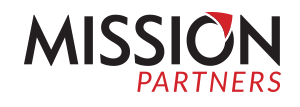Our Commitment to Racial Equity: July 2021 Progress Report
In July 2020, Mission Partners published a Race Equity Action Plan, a collection of our commitments and actions to advance racial equity within our business, our client work, and our world. Within that document, we stated that we would revisit and refine these commitments on a quarterly basis. The following is the second in a series of quarterly updates from the Mission Partners leadership team on our progress to advance these commitments.
Mission Partners’ commitment to the J.E.D.I. principles of racial justice, equity, diversity, and inclusion—an understanding and acknowledgement of historical and ongoing racism and a commitment to actions challenging racism—is a core tenet of our work, embedded into our structure, analysis, and policy development and processes.
While equity and inclusion have been central to our company since our founding in 2017, our team came together in 2019 around a shared desire to develop and hold ourselves accountable to a Race Equity Action Plan. We wanted to take our racial justice commitments to a deeper level by publicly sharing—first with our employees and partners—and then with our broader community, to hold ourselves accountable to action. In that plan, we identified three areas of focus where we could have the greatest ability to advance our anti-racist commitment and to support the building of more equitable systems—in our business, with our clients, and for our world. Our commitments extend to all communities of color who have felt the harmful effects of hate and oppression in our society. Read more about our current and ongoing efforts in our latest blog.
What follows is an update on our work since our last report in March 2020:
In Our Business
In February 2020, Mission Partners launched its Equity Accountability Team, a group open to all Mission Partners employees and contractors. The Equity Accountability Team meets regularly for discussion and collaboration on ways to hold the business accountable to commitments outlined in the Race Equity Action Plan. Guided by feedback sourced in our quarterly employee survey, in Q2 of 2020, we amended the format of the Equity Accountability Team to create three distinct working groups – in our business, with our clients, and for our world – with each group led by a member of the leadership team. These working groups meet regularly to collaborate on team-guided projects, with ultimate accountability for progress held at the leadership level. Equity Accountability Team meetings are now formally part of leadership team meeting agendas, rather than standalone sessions. These important changes – guided by a team desire for more interest-aligned, collaborative projects – now allow space for small group discussion, and hold the leadership team accountable to measure progress against stated goals, every six weeks.
At the end of Q1 and into Q2, we also revamped our employee incentive program to more closely align with Mission Partners’ core values. Our quarterly employee incentives no longer include gift cards through companies like Amazon or American Express, but instead support fellow B CorpsTM, Black and women-owned businesses, and local businesses in the DC region. We aim for every dollar spent by Mission Partners to be values-aligned.
With Our Clients
To ensure diversity, equity, and inclusion are deeply embedded in our client work, the team is developing best practices and lessons learned for all Mission Partners’ signature deliverables. In Q2, this included a revision of our communications audit process to minimize bias and white-dominant standards of evaluation. Through multiple working sessions, our team developed a new process to replace a highly subjective audit scoring system with a more holistic look at organizational communications, visual branding, and language. Rather than present clients with a single number to represent the effectiveness of their communications and branding, our new process shares a comprehensive visual and written report of strengths and opportunities for discussion.
In Q2, our client work also featured multiple experiential learning sessions to deepen our skills in communicating with asset-based language. Building on our Q1 Editorial Guide to help eliminate subjectivity and bias, our asset-framing workshops focus on centering asset-based language across Mission Partners deliverables. This reframing of language is critical to effectively communicating about individuals as whole people, and framing diversity of thought, culture, and lived experience as assets, rather than deficits. As communicators, we recognize our ability to challenge racist, inequitable, deficit-based language and instead center people-first, equitable, asset-based language. Our team strives to meet this challenge daily, and in every deliverable we put into the world.
For Our World
Mission Partners is a Certified B Corporation TM with a commitment to using our business as a force for good. In June 2021, we submitted our application for B Corp recertification, demonstrating our company-wide commitments to consider people, planet, and profit in every decision we make. The revised B Corp Impact Assessment includes an expanded section on diversity, equity, and inclusion that evaluates diversity of suppliers, company management, and ownership – including how we create and manage an inclusive work environment and evaluating the diversity of gender, age, income, and race and ethnicity across our team. As part of our 2021 recertification, Mission Partners’ B Corp score is expected to increase through additional policies and actions that demonstrate our commitment to principles of racial justice, equity, diversity, and inclusion, such as a new policy that ensures part-time employees receive benefits like healthcare and paid time off, a recent pay equity analysis and transparency of salary ranges, and our commitment to set specific and measurable diversity improvement goals. .
In Q2, Mission Partners’ CEO Carrie Fox became a founding member of the TIME’S UP Care Economy Business Council, a diverse coalition of hundreds of business leaders committed to building a comprehensive caregiving infrastructure and creating a stronger, more resilient economy. Joining this council signals our deep commitment to supporting the building of an economy that works for everyone, especially working parents and caregivers. While most workplaces are not built to support the care we need at each stage of life, Mission Partners will continue to advocate for more inclusive policies and to support the strengthening of the care economy. Carrie also collaborated with Natalie Burke of CommonHealth ACTION for the third season of our Mission Forward podcast, bringing forth a series of thought-provoking conversations on issues of race, whiteness, privilege, and the need for a new American culture. Listen to the third season here: https://mission.partners/mission-forward/podcast-episodes/
We also continue to steward our team’s time, treasure, and talent in support of advancing racial equity in our world. In Q2, we hosted our second annual day of service and learning, with paid time off for all employees to observe Juneteenth. And to date, Mission Partners has committed $81,000 in pro bono strategic communications support to Black-led organizations. While we are only 50% through the year, we have already exceeded our initial goal of $50,000 in pro bono support for Black-led organizations in 2021 and are considering increasing that number into Q3.
While Q2 saw progress against our commitments in the Racial Equity Action Plan, our team acknowledges that this journey will last for the lifespan of our organization—there is so much more that we can do and look forward to doing in the years to come. We will continue to report out on our progress towards our goals and invite our team, our community, and our clients to hold us accountable to these commitments.
Carrie Fox, Bridget Pooley, Deb Ferrin, Arron Neal, Jessica Hassanzadeh





 Check out our new
Check out our new